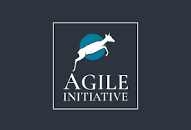Maritime shipping one step closer to full decarbonisation

The Oxford Martin School Agile Initiative focusses on putting essential research based knowledge required to solve societal challenges such as biodiversity loss and climate change, into the the hands of policy makers.
During the 80th session of the Marine Environment Protection Committee (MPEC 80) at the International Maritime Organization (IMO), member countries have pledged to strengthen the decarbonisation ambitions of the maritime sector. The revised strategy is now more Paris-aligned, aiming for the sector to be net-zero greenhouse gas (GHG) emissions at 2050, with a strong emphasis on a Just and Equitable transition.
The result of almost two weeks of negotiations by the 175 Member States of the IMO marks an historical achievement, and is in line with the earlier efforts of some of the member countries to push for a revision of the 2018 IMO Strategy in which a target of 50% was adopted (compared to 2008). The 2023 revised strategy now strives for a 30% GHG reductions by 2030, 80% GHG reductions by 2040 and an ambition to reach net-zero GHG emissions by 2050. The Agile Sprint to find pathways to decarbonising shipping via green ammonia’, is well placed to support this strategy. It is developing models to predict what a future net-zero supply-chain (from production to fuel locations) for green shipping fuels could look like.
Read more here

